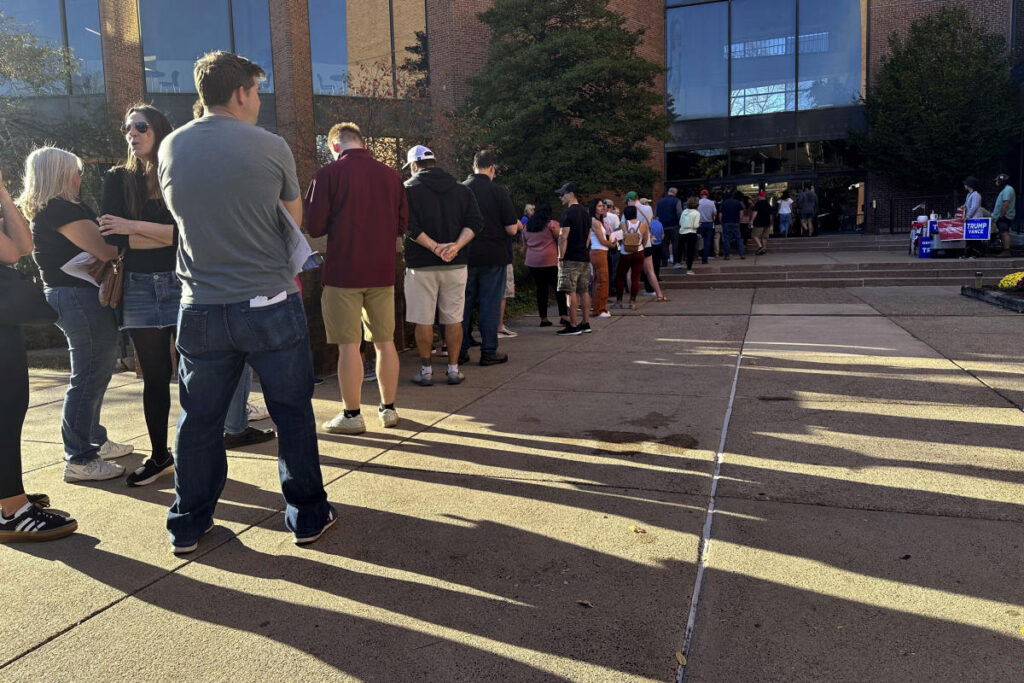The upcoming election focuses on seven key states—Arizona, Georgia, Michigan, Nevada, North Carolina, Pennsylvania, and Wisconsin—crucial for securing the Electoral College votes necessary for a candidate to achieve a majority of 270. As pivotal battlegrounds, these states have drawn significant attention from both Vice President Kamala Harris and former President Donald Trump, who have campaigned extensively within their borders. The outcome in these states is expected to determine the overall result of the election, creating a complex scenario across multiple time zones that complicates the monitoring of real-time results on Election Day.
Starting with Arizona, polls will open at 8 a.m. ET, continuing the pattern from the 2020 election, where Biden won the state by a narrow margin of 0.3%. This marked a significant shift as it was only the second time in nearly seven decades that a Democratic candidate had won Arizona. The polls will close at 9 p.m. ET, and election officials will not release results until all precincts report, creating a timeline to watch as discussions around voting processes evolve.
Georgia’s election scenario is equally critical, considering the state’s narrow results in 2020, where Biden edged out Trump by just under one-quarter of a percentage point. Polls in Georgia will open at 7 a.m. ET and close at 7 p.m. ET. The legal battles stemming from Trump’s attempts to contest the 2020 election result are still fresh, making this state a focal point for political tension and public interest. The challenge ahead is set against a backdrop of ongoing legal proceedings, which adds another layer of complexity to the electoral landscape.
In Michigan, the polls will also open at 7 a.m. ET and close at 8 p.m. ET, making it a crucial area for Democrats as it historically supported them for nearly three decades before flipping in 2016. Biden reversed this trend in 2020, winning by about 154,000 votes, which highlights the slim margins that can sway the election. The state spans two time zones, underlining the intricate coordination needed as results will be monitored with close attention throughout the evening.
Nevada presents a unique situation, as its polls will open later at 10 a.m. ET and close at 10 p.m. ET. The state has proven to be a reliable predictor of presidential outcomes in recent history. However, the delayed result release—pending the last person in line voting—means observers will be waiting longer for initial data. The characteristics of Nevada as a bellwether state, coupled with its small but significant electoral prize, make it a noteworthy component in the larger electoral calculus.
North Carolina, where polls open at 6:30 a.m. ET and close at 7:30 p.m. ET, stands out for its competitive nature, as it has only supported Democrats twice in presidential elections since 1968. Trump’s slim victory margin in 2020 indicates the state’s fluctuating political dynamics. Meanwhile, Pennsylvania, another crucial battleground with 19 electoral votes, will see polls open at 7 a.m. ET and close at 8 p.m. ET. Biden’s narrow victory there in 2020 and the recent campaign debates amplify its importance for both parties and set the stage for a critical electoral showdown.
Finally, Wisconsin, with a polling schedule similar to Michigan, will open at 8 a.m. ET and close at 9 p.m. ET. This state has a history of close races, often determined by less than a percentage point, imposing high stakes as the results will unfold over the night. The combined outcomes of these states will play an integral role in the overall election results, emphasizing the need for vigilance and scrutiny as voters cast their ballots and the nation anxiously awaits to see if trends from 2020 will hold or if the electoral tide will shift.

